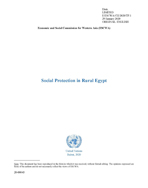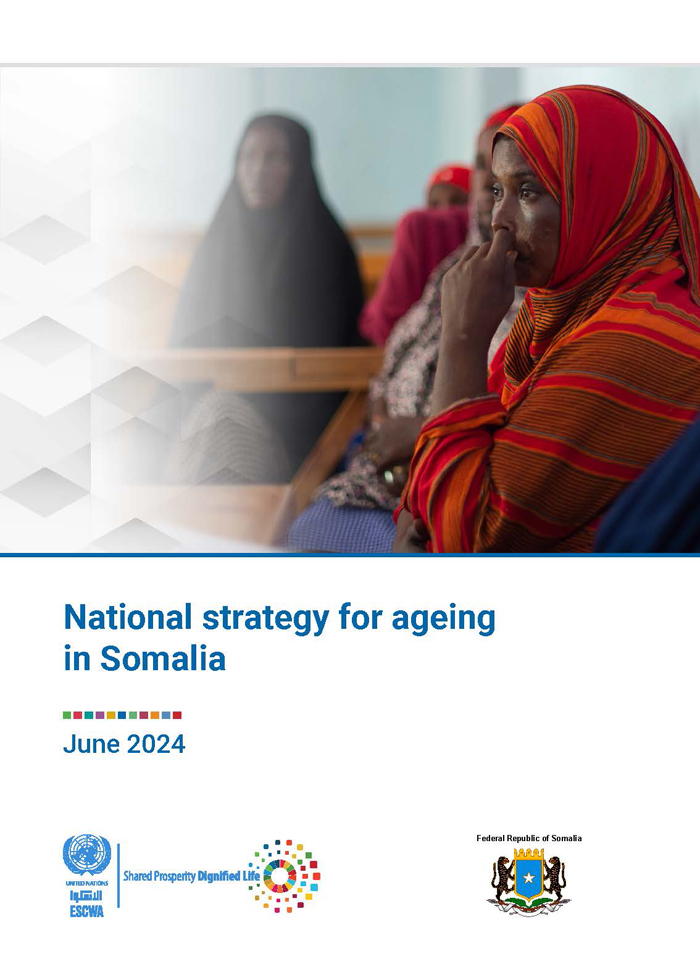
ESCWA Publication: E/ESCWA/CL2.GPID/2020/TP.1
Country: Arab Republic of Egypt
Publication Type: Information material
Cluster: Gender Justice, Population and Inclusive Development, 2030 Agenda and SDG Coordination
Focus Area: 2030 Agenda, Inclusive development, Future of employment
Initiatives: Arab Digital Inclusion Platform
SDGs: Agenda 2030
Keywords: Governance, Health policy, Pension schemes, Poverty, Public health, Public welfare, Social security, Social welfare, Subsidies
Social Protection in Rural Egypt
January 2020
Egypt has a history of an extensive but largely fragmented social protection system. At times, it has been biased towards urban areas as opposed to rural ones, where the majority of the poor and vulnerable are located. Against this background, recent social assistance programmes have stronger focus on rural Egypt.
The paper analyses the current state of social protection programmes in rural Egypt and makes recommendations on its fine-tuning to better meet the needs of rural dwellers. To this end it provides background information on the specific features of rural life which are directly or indirectly linked to social protection delivery, analyzes social protection policies available to rural people in terms of the coverage, adequacy and challenges, and gives policy recommendations aimed at improving the existing social protection programmes and reinforcing them with broader public policies and programmes.
Related content
2030 Agenda
, Inclusive development
, Future of employment
,
Egypt has a history of an extensive but largely fragmented social protection system. At times, it has been biased towards urban areas as opposed to rural ones, where the majority of the poor and vulnerable are located. Against this background, recent social assistance programmes have stronger focus on rural Egypt.
The paper analyses the current state of social protection programmes in rural Egypt and makes recommendations on its fine-tuning to better meet the needs of rural dwellers. To this end it provides background information on the specific features of rural life which are directly or indirectly linked to social protection delivery, analyzes social protection policies available to rural people in terms of the coverage, adequacy and challenges, and gives policy recommendations aimed at improving the existing social protection programmes and reinforcing them with broader public policies and programmes.



